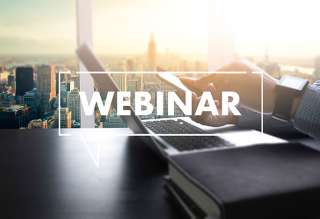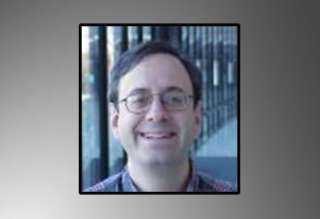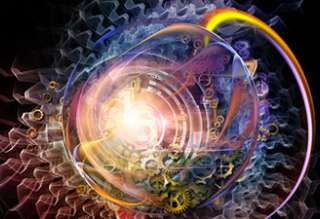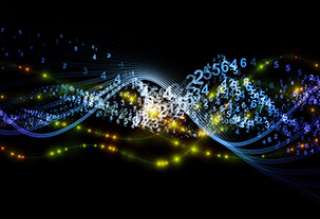SPS Feed
Top Reasons to Join SPS Today!
1. IEEE Signal Processing Magazine
2. Signal Processing Digital Library*
3. Inside Signal Processing Newsletter
4. SPS Resource Center
5. Career advancement & recognition
6. Discounts on conferences and publications
7. Professional networking
8. Communities for students, young professionals, and women
9. Volunteer opportunities
10. Coming soon! PDH/CEU credits
Click here to learn more.
The Latest News, Articles, and Events in Signal Processing

Immediate opening for a postdoctoral researcher in radionavigation and wireless communication systems at the Autonomous Systems Perception, Intelligence, & Navigation Laboratory (https://aspin.ucr.edu); University of California, Irvine (https://uci.edu).
Signal reconstruction is a challenging aspect of computational imaging as it often involves solving ill-posed inverse problems. Recently, deep feed-forward neural networks have led to state-of-the-art results in solving various inverse imaging problems. However, being task specific, these networks have to be learned for each inverse problem.
It is well-established in the compressive sensing (CS) literature that sensing matrices whose elements are drawn from independent random distributions exhibit enhanced reconstruction capabilities. In many CS applications, such as electromagnetic imaging, practical limitations on the measurement system prevent one from generating sensing matrices in this fashion.

We have 2 PhD Positions open in Distributed Statistical Learning in IoT with Adversarial Environments
Job Description
The low-rank plus sparse (L+S) decomposition model enables the reconstruction of undersampled dynamic parallel magnetic resonance imaging data. Solving for the low rank and the sparse components involves nonsmooth composite convex optimization, and algorithms for this problem can be categorized into proximal gradient methods and variable splitting methods. This paper investigates new efficient algorithms for both schemes.

https://nato.taleo.net/careersection/2/jobdetail.ftl?job=190339&lang=en#.XKyV6uNspCw.gmail
Deputy Director-190339
Primary Location
Italy-La Spezia
NATO Body
Centre for Maritime Research and Experimentation (CMRE)
Ghost imaging has recently been successfully achieved in the X-ray regime. Due to the penetrating power of X-rays this immediately opens up the possibility of ghost-tomography. No research into this topic currently exists in the literature. Here, we present adaptations of conventional X-ray tomography techniques to this new ghost-imaging scheme. Several numerical implementations for tomography through X-ray ghost-imaging are considered.
Matched field processing (MFP) compares the measures to the modeled pressure fields received at an array of sensors to localize a source in an ocean waveguide. Typically, there are only a few sources when compared to the number of candidate source locations or range-depth cells. We use sparse Bayesian learning (SBL) to learn a common sparsity profile corresponding to the location of present sources.
Supervised learning-based methods for source localization, being data driven, can be adapted to different acoustic conditions via training and have been shown to be robust to adverse acoustic environments. In this paper, a convolutional neural network (CNN) based supervised learning method for estimating the direction of arrival (DOA) of multiple speakers is proposed.
This paper investigates sound-field modeling in a realistic reverberant setting. Starting from a few point-like microphone measurements, the goal is to estimate the direct source field within a whole three-dimensional (3-D) space around these microphones. Previous sparse sound field decompositions assumed only a spatial sparsity of the source distribution, but could generally not handle reverberation.
Acoustic source localization and tracking is a well-studied topic in signal processing, but most traditional methods incorporate simplifying assumptions such as a point source, free-field propagation of the sound wave, static acoustic sources, time-invariant sensor constellations, and simple noise fields.
The IEEE Journal of Selected Topics in Signal Processing solicits special issues on topics that cover the entire scope of the IEEE Signal Processing Society, as outlined in the SPS Constitution, Article II:
"The Signal Processing Society's Field of Interest shall be the theory and application of filtering, coding, transmitting, estimating, detecting, analyzing, recognizing, synthesizing, recording, and reproducing signals by digital or analog devices or techniques. The term `signal' includes audio, video, speech, image, communication, geophysical, sonar, radar, medical, musical, and other signals
Lecture Date: May 8, 2019
Chapter: Germany
Chapter Chair: Wolfgang Utschick
Topic: Speech Recognition: What’s Left?

Applicants are sought for a postdoctoral position on a project of auditory perception in complex listening environments. The project employs signal processing and computational models as well as experimental techniques (recordings of brain activity) to explore mechanisms underlying auditory scene analysis and their translation into smart audio technologies.

The Department of Electrical and Electronic Engineering, Southern University of Science and Technology (SUSTech) now invites applications for the faculty position in the Department of Electrical and Electronic Engineering. It is seeking to appoint a number of tenured or tenure track positions in all ranks.

Deputy Director-190339
Primary Location
Italy-La Spezia
NATO Body
Centre for Maritime Research and Experimentation (CMRE)
Schedule
Full-time
Euro (EUR) Yearly
Grade A.6
Description
:
1. GENERAL JOB DESCRIPTION
1.1 POST IDENTIFICATION
Primary Location: Italy – La Spezia

CTTC is seeking to hire an Early Stage Researcher (ESR) to join the WindMill project. The project offers an excellent research and training programme:
Pages
SPS Social Media
- IEEE SPS Facebook Page https://www.facebook.com/ieeeSPS
- IEEE SPS X Page https://x.com/IEEEsps
- IEEE SPS Instagram Page https://www.instagram.com/ieeesps/?hl=en
- IEEE SPS LinkedIn Page https://www.linkedin.com/company/ieeesps/
- IEEE SPS YouTube Channel https://www.youtube.com/ieeeSPS









